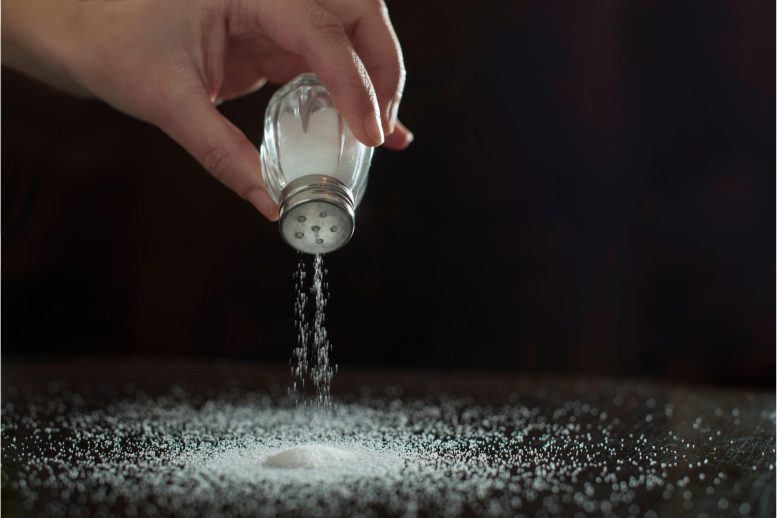
A recent study has linked frequent addition of salt to food with a significantly higher risk of developing stomach cancer in Europe, a risk similar to that observed in Asian populations with high-salt diets. The study, which controlled for demographic, socioeconomic, and lifestyle factors, found that those who often added salt were 39% more likely to develop stomach cancer compared to those who rarely or never added salt.
Link between salt intake and stomach cancer demonstrated in Western countries for the first time
In many Asian nations where high-salt diets are common, the association between excessive salt intake and stomach cancer has been well-established. A recent long-term study conducted by MedUni Vienna has now demonstrated for the first time that this risk is similarly evident in European cancer statistics. According to research recently published in the journal Gastric Cancer, individuals who regularly add salt to their meals have about a 40 percent higher risk of developing stomach cancer compared to those who refrain from using additional salt at the table.
Data from more than 470,000 adults from the large-scale British cohort study “UK-Biobank” was analyzed. Among other things, the answers to the question: “How often do you add salt to your food?” were collected by questionnaire between 2006 and 2010. The research team led by Selma Kronsteiner-Gicevic and Tilman Kühn from MedUni Vienna’s Center for Public Health compared the results of the survey with salt excretion in urine and with data from national cancer registries.
This revealed that people who said they always or frequently added salt to their food were 39 percent more likely to develop stomach cancer over an observation period of around 11 years than those who never or rarely added an extra pinch of salt to their food. “Our results also stood up to the consideration of demographic, socioeconomic, and lifestyle factors and were just as valid for prevailing comorbidities,” says first author Selma Kronsteiner-Gicevic, emphasizing the significance of the results.
Stomach Cancer Is Affecting More and More Younger People
In the list of the most common types of cancer worldwide, stomach cancer is in fifth place. The risk of this tumor disease increases with age, but the latest statistics paint a worrying picture of an increase in adults under the age of 50. Risk factors include tobacco and alcohol consumption, an infection with Helicobacter pylori, overweight, and obesity. The fact that a very salty diet increases the risk of stomach cancer has previously been proven in studies with Asian population groups, who frequently eat food preserved in salt, heavily salted fish or extremely salty marinades and sauces.
“Our research shows the connection between the frequency of added salt and stomach cancer in Western countries too,” emphasizes first author Selma Kronsteiner-Gicevic. “With our study, we want to raise awareness of the negative effects of extremely high salt consumption and provide a basis for measures to prevent stomach cancer,” summarises study leader Tilman Kühn.
Reference: “Adding salt to food at table as an indicator of gastric cancer risk among adults: a prospective study” by Selma Kronsteiner-Gicevic, Alysha S. Thompson, Martina Gaggl, William Bell, Aedín Cassidy and Tilman Kühn, 17 April 2024, Gastric Cancer.
DOI: 10.1007/s10120-024-01502-9









I guess we must all become vegetarians.